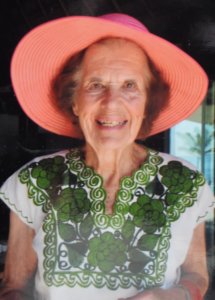Taking Care: First jobs are a right of passage

This was my year following college and I was in Washington, D.C., searching for my first job. In an unusuaI arrangement I was renting a room from Admiral and Mrs. McDonald who had purchased an enormous house near Dupont Circle. They had invited me to one of their parties and I entered the ballroom that must have had half the top brass in the city—distinguished-looking men in uniforms with stripes on their sleeves and ribbons on their chests. The women were stylish and assured. Everyone was relaxed and friendly. I assumed the most important had more stripes on their sleeves. Several rivaled the Admiral’s, including stars on their lapel. Conversation glided along, and they relished telling me how they had acquired them.
Over tea the next afternoon Mrs. McDonald congratulated me on fitting in easily. “One of the admirals wanted your phone number,” she said. “My advice is don’t go that route. There are ample attractive young men in your age group and stick to them. Don’t make your life more complicated than it needs to be.” I didn’t understand her implications at the time. That was the only warning she ever gave me and it was well advised.
One late afternoon as I got off the subway Mrs. McDonald was outside in her evening dress sweeping the sidewalk. A party was scheduled and she was tidying up. I wondered where the handyman was but saluted her unpredictable spirit.
I was elated to be hired at the International Bank and Monetary Fund on H Street, only two blocks from the White House. The striking white stone building with its marble floors was one of the few buildings in the city to be air-conditioned. Inside the row of mirrored elevators silently zipped up to the top floor. I was hired as a Code Clerk with offices in the cave-like basement but they assured me I would be promoted. All messages from abroad were considered top secret and arrived in code. I decided this added glamor to my job as everyone upstairs depended on the contents in these telegrams to make their policies.
In addition to decoding I volunteered to deliver the translated messages—often to the President of the IMF in his elegant office overlooking the city. Everything was formal with many visiting dignitaries arriving for hush-hush meetings.
Dashing up and down in the elevators, I got a sense of who worked in the building: it was filled with young men sent from prominent families, mainly Egyptians and Saudis, to learn about world banking; they would later return to their countries in responsible positions.
A friend and I often took our lunch sandwiches to Lafayette Park where we sat on a bench and chatted. On the way we passed Harry Truman who paused to tip his hat and greet us. He smiled cordially. He was accompanied by one Secret Service man. In this era the White House was so accessible you could almost walk in the front door—it wasn’t until later that barricades were built around it.
As I left after work in the late afternoon, the sidewalk was lined with black limousines. The rotund occupant in the back seat filled with plush pillows rolled down the window and in his thick accent asked, “Aleece, could I give you a ride?” “We met in the elevator at the IMF.” If I was going to the train station I would accept his offer, otherwise I declined and took the trolley up Wisconsin Avenue. I felt uncomfortable agreeing to the occasional dinner invitation, sensing I might suddenly find myself in over my head—whatever that meant.
As I glanced down the line of shiny black cars, a woman in fishnet stockings sometimes appeared from nowhere. She wore a mink fur around her flimsy see-through dress and hurriedly stepped into the back seat where a gentleman waited. Her demeanor didn’t fit with any of the secretaries at the IMF. I wondered what other type of plans for the evening?
First jobs really are a rite of passage into adulthood both personally and professionally. You must have had memories of yours, the people you worked with and how you handled the culture into which you were thrust.

